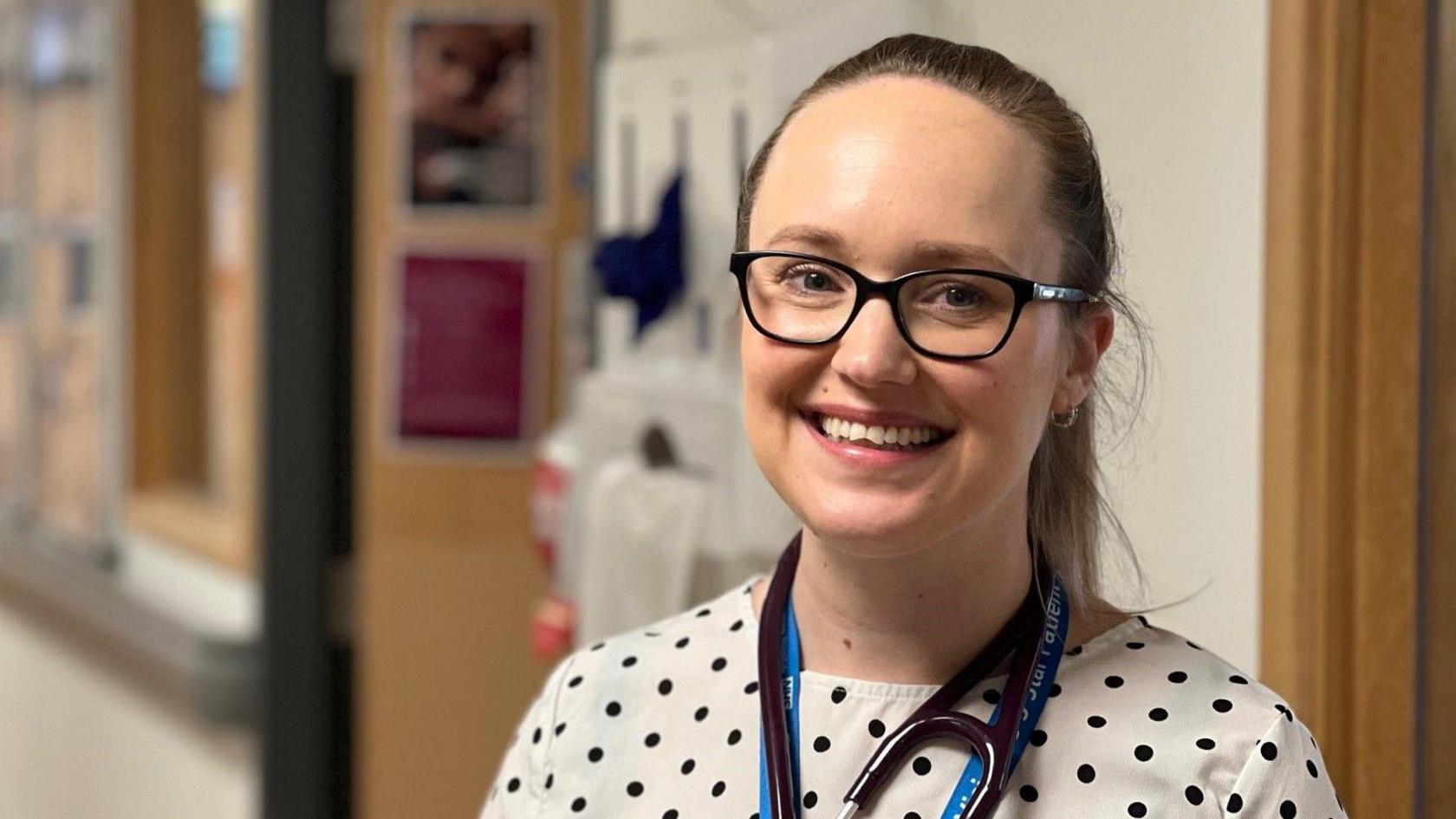What is being done to reduce NHS waiting times?
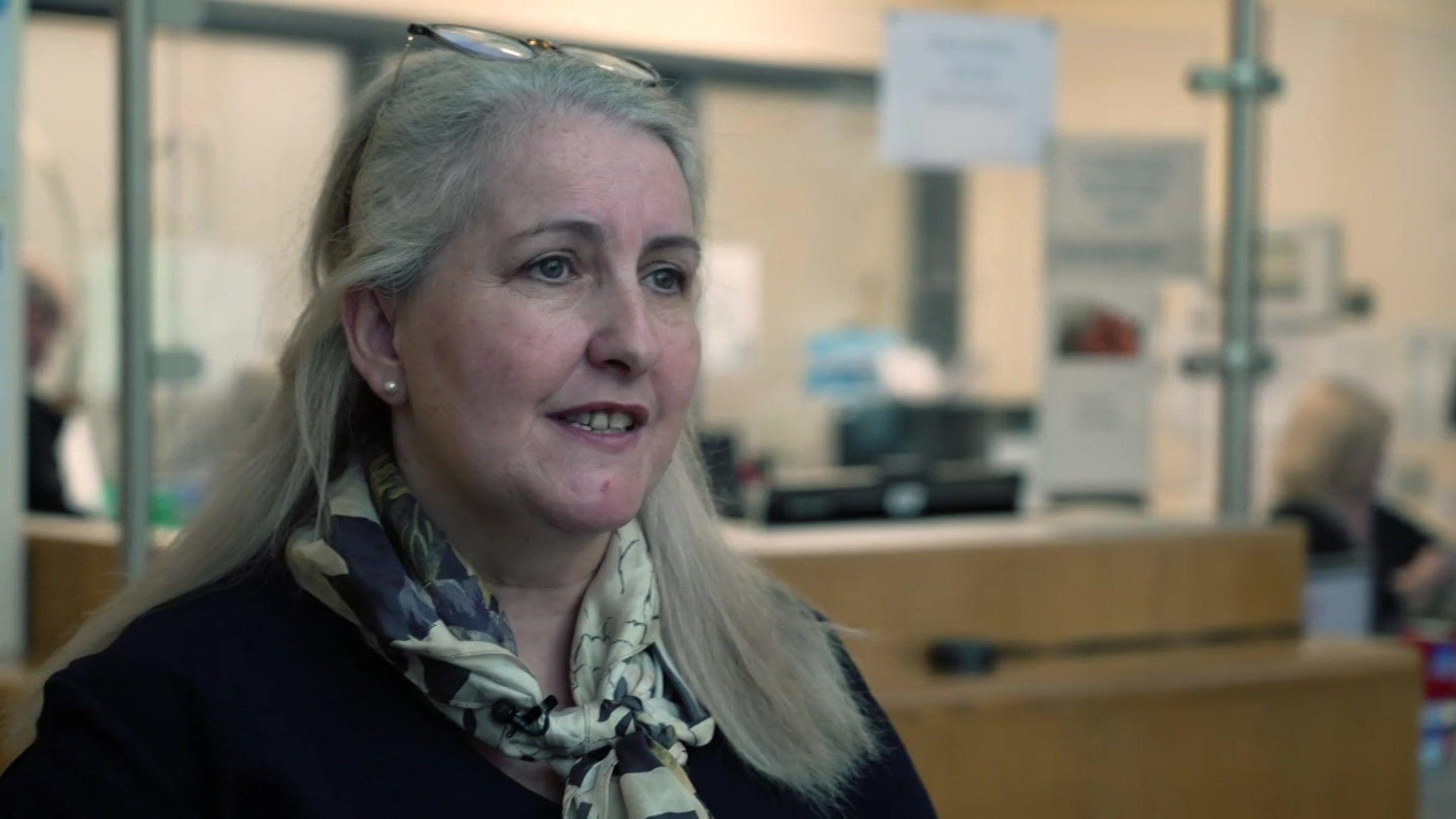
Julie Southern said the new system had ended the morning rush for an appointment
- Published
As the NHS in the North West prepares for another busy winter, we look at some of the projects put in place to make sure people get the treatment they need, as they need it.
At Whiston Hospital in Prescot, Merseyside, innovations include "virtual wards", where doctors monitor patients at home, and urgent community response teams operated by nurses, therapists, and social care workers.
GP practices are also working to be more efficient, as last month the NHS moved to a "total triage" system, where appointment requests are immediately assessed by GPs or nurses.
We went to one practice in Lancashire to see how the system is working.
"Prior to this, you would have had an eight o'clock rush either on the phones or at the reception desk," Julie Southern, the Digital Transformation Lead at Buckshaw Village Health Centre said.
"You would have seen a queue of people outside before 8am wanting to get those appointments that were there. That's changed totally."
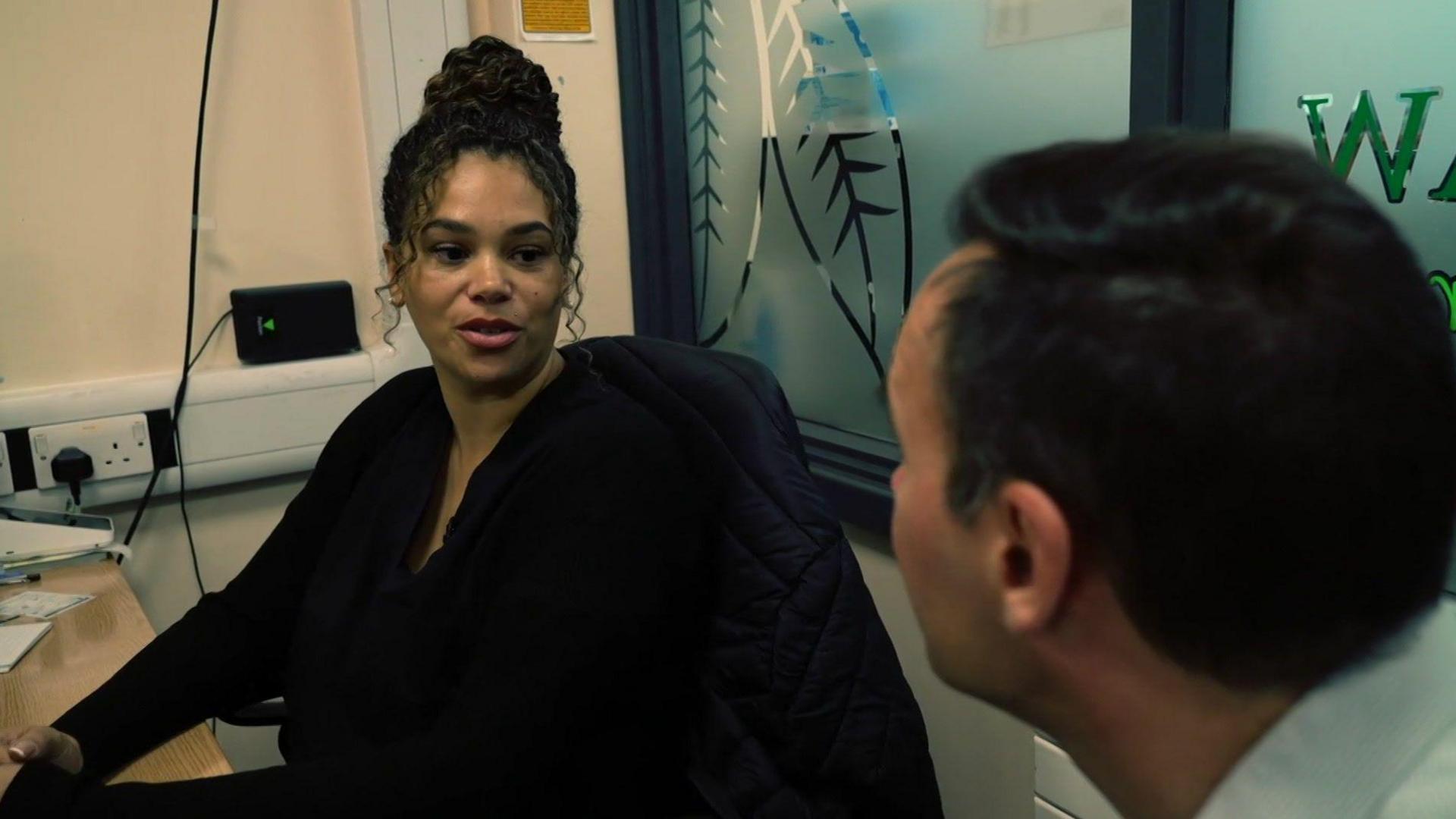
Receptionist Gemma Ronald said the system helps prioritise urgent appointments
The health centre now logs every online request, phone call and walk-in from the 12,500 patients who use the practice and they are sent to two GPs.
Dr Chris Scales said: "Every enquiry that comes in is checked by a GP.
"They range from children with an injured foot, to coughs and colds, to patients who have had a recent cancer treatment and are having some complications."
He said some people will be called in for a same-day appointment, while others will be given a prescription and directed to a pharmacy.
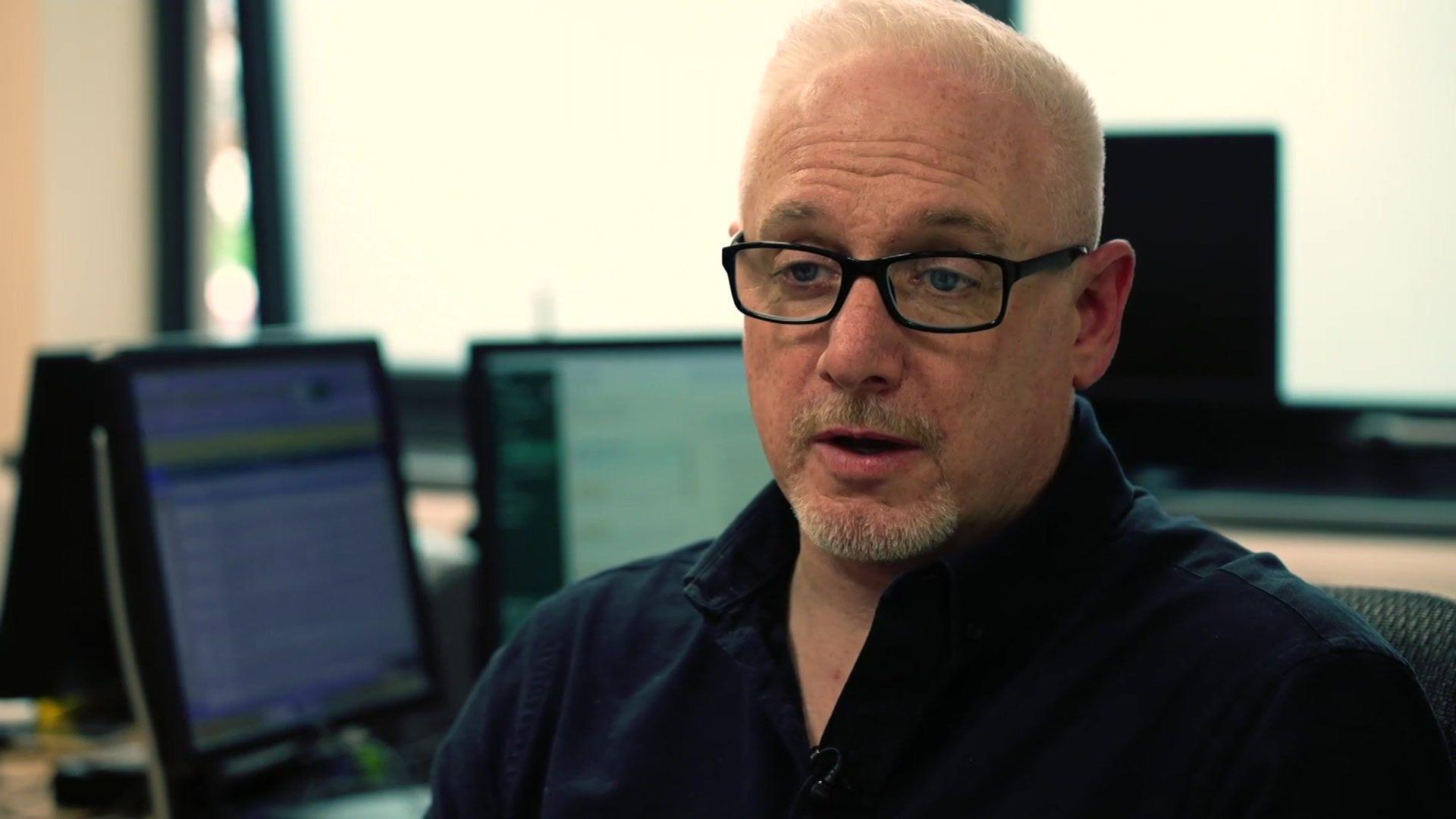
Dr Chris Scales said the health centre was managing the new system "very well"
Reception staff at the health centre said most requests now come in online and it is a more efficient way of dealing with requests
"There could be 50, 60 people waiting in a call queue," receptionist Gemma Ronald said.
"It was on us to obviously decide whether that was an urgent appointment or not.
"It is easier now that it's going through to the doctors."
Some patients in the health centre waiting room agreed.
"It is much more efficient," one woman said.
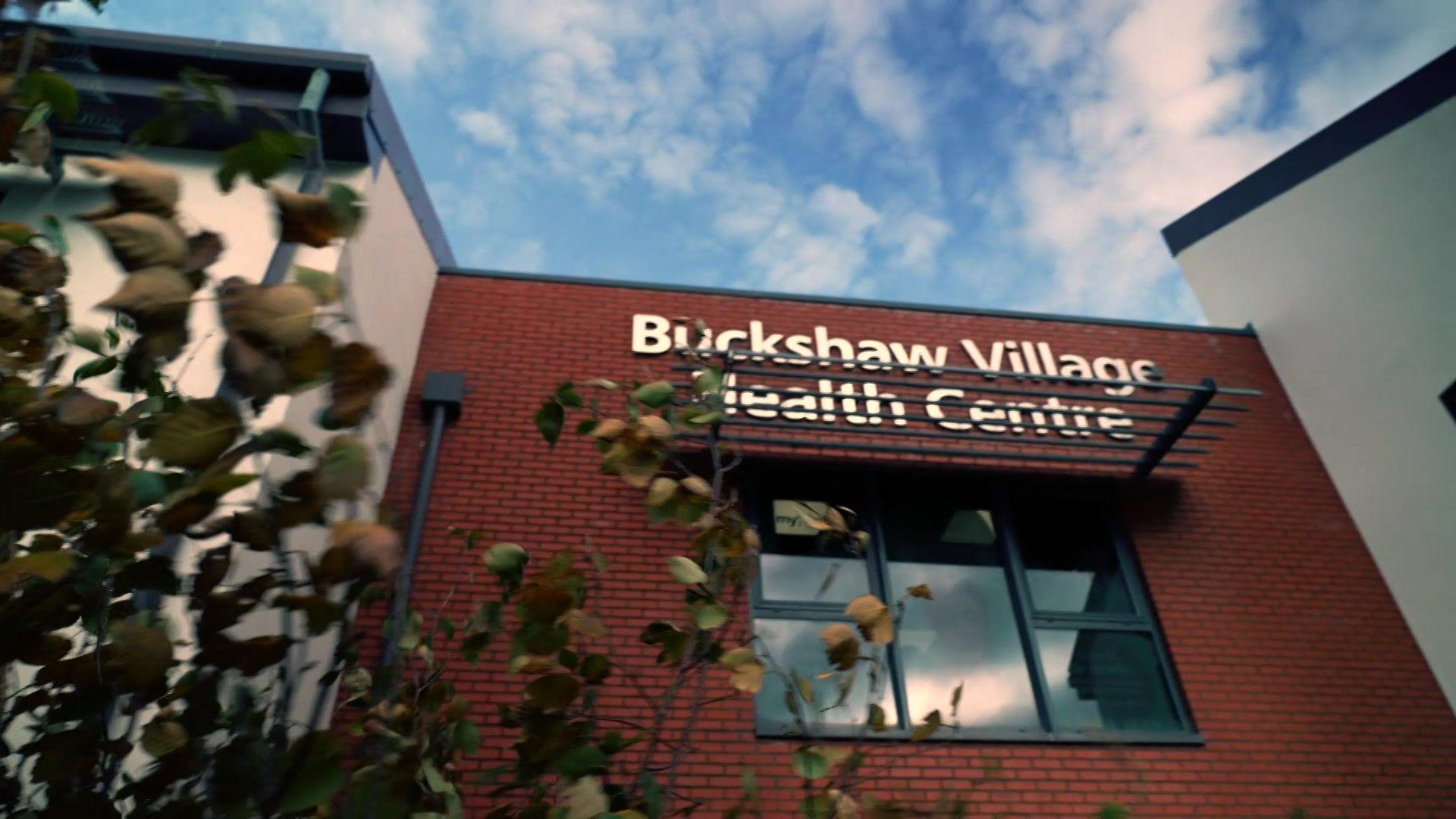
Buckshaw Village Health Centre has 12,500 patients on its books
"It means that I can quickly get an appointment and then I can just get on with the rest of my day."
However, others said they thought it added time and unnecessary complication.
"I phoned up this morning and I don't like it at all," another patient said.
"I think it's a long way of going about what the receptionist used to do anyway.
Another added: "I find it easier just to pick up the phone and talk to someone."
Staff said they are on hand for people who need help to book appointments.
The British Medical Association had raised concerns about GP workload under this new system, but Dr Scales said the practice was managing the new system "very well".
At Whiston Hospital, they now have 75 "virtual ward" beds, where low risk patients are cared for in their own home or elsewhere in the community, like a care home.
The idea is to replicate the care a patient would get in hospital, but somewhere else.
They are regularly checked and treated by nurses and therapists, who then report back to a senior doctor, who takes charge of their overall care.
Get in touch
Tell us which stories we should cover in the North West
Read more stories from Cheshire, Lancashire, Greater Manchester and Merseyside on the BBC, watch BBC North West Tonight on BBC iPlayer and follow BBC North West on X, external.
- Published29 October
